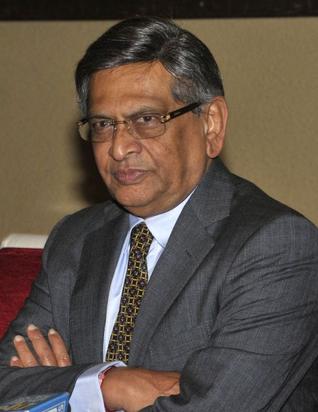 Abu Dhabi, April 16: Keeping a sharp eye on the welfare of overseas Indians, External Affairs Minister S.M. Krishna on Sunday instructed all Indian embassies in the Gulf to attend to emergency situations round-the-clock.
Abu Dhabi, April 16: Keeping a sharp eye on the welfare of overseas Indians, External Affairs Minister S.M. Krishna on Sunday instructed all Indian embassies in the Gulf to attend to emergency situations round-the-clock.
Addressing Indian ambassadors posted in the Gulf countries, the Minister seemed to elaborate what has been called the “Krishna doctrine”— the mantra that demands that Indian envoys roll up their sleeves to give as much importance to the well-being of the Indian expatriates as they do to hard diplomacy.
“The footprint of the Indian diaspora has now expanded right across the globe, demanding deployment of dedicated officers to attend to their problems,” an official source said.
The Minister's focus on the welfare of the expatriate community has sharpened following the unsavoury incidents involving Indian nationals in Britain, Australia and Norway, the source said.
During his interaction, the Minister drew their attention to the plight of Indian sailors taken hostage by Somali pirates. He pointed out that Indian diplomats in the region have a special role to play in the safe release of the hostages, as many of the owners of the pirated ships reside in the Gulf area.
Mr. Krishna also laid stress on the quality of consular services for the expatriate community, whose estimated strength is around six million. He noted that overseas Indians repatriate billions of dollars back home, and therefore deserve better services.
During his UAE visit, he paid special attention to the situation of the blue collar workers, whom he met separately at an embassy function on Sunday. “I would like you to pay special attention to the most vulnerable among our expatriates,” Mr. Krishna earlier told the ambassadors.
The meeting also became a brainstorming session for India's future role in the energy-rich Gulf countries. Official sources said discussions revolved around the evolution of a robust framework for Indian engagement with the Gulf region for the next decade.
The meeting noted that issues related to energy security, regional developments and cooperation with the six-nation Gulf Cooperation Council, were of “core interest” to India. The advent of the “Arab Spring,” the bouquet of pro-democracy movements in the region had enhanced the significance of the region. The meeting underscored that the Gulf — an area where trade is now booming — had emerged as one of the most important regions for India's diplomatic activism.





Comments
Add new comment